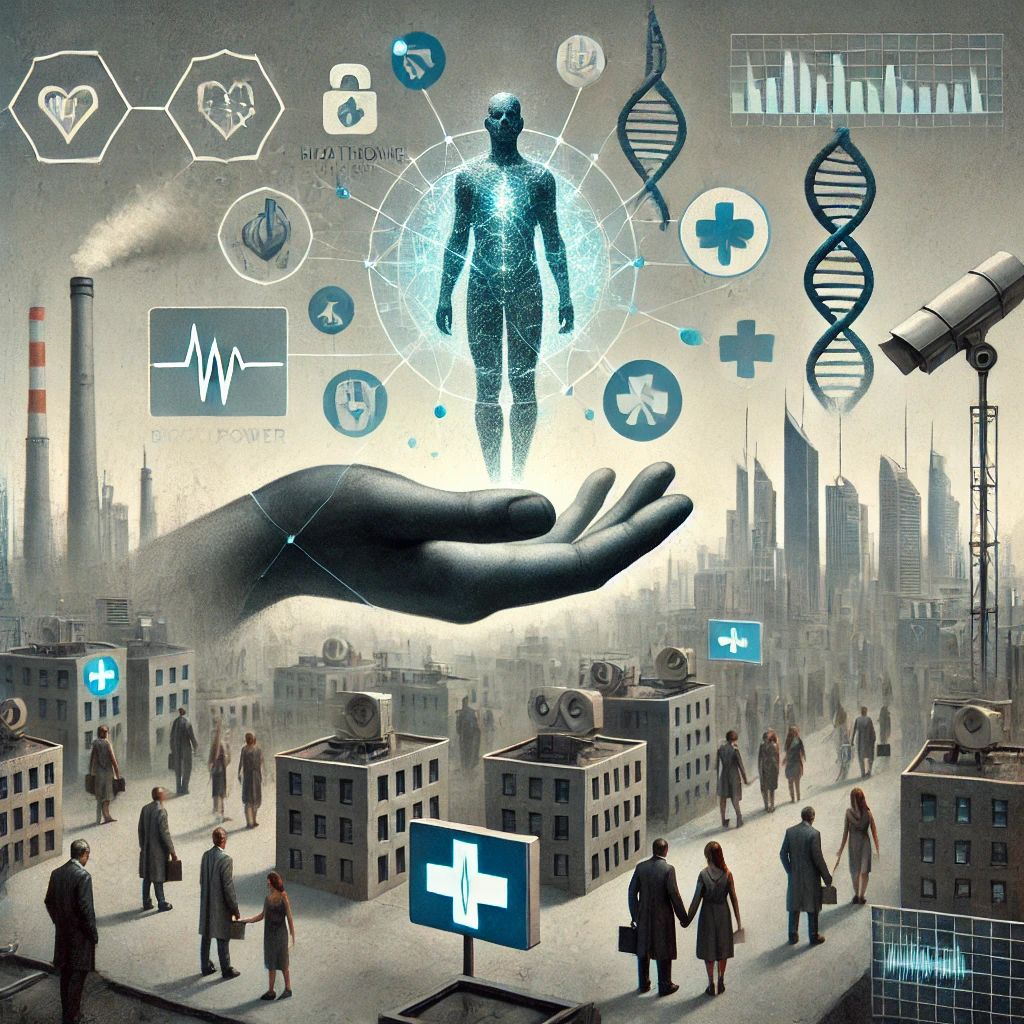Michel Foucault’s concept of “biopower” stands as one of the most transformative ideas in contemporary critical thought, influencing fields from sociology and political theory to anthropology and ethics. Defined in his lectures and writings from the 1970s, biopower addresses how modern states exercise control over populations and individual bodies, moving beyond traditional forms of sovereign power to shape the very life processes of societies.

What is Biopower?
To understand biopower, one must first grasp Foucault’s broader theory of power, which challenges traditional views of power as something possessed by institutions or individuals. Rather than being a fixed resource, Foucault sees power as diffuse, relational, and omnipresent, operating within networks rather than simply being wielded from above. As Foucault wrote, “power is everywhere; not because it embraces everything, but because it comes from everywhere.” This conception of power paved the way for his exploration of power’s nuanced forms, particularly biopower.
In his 1976 work The History of Sexuality: Volume 1, Foucault first introduces biopower as a form of governance distinct from earlier forms of power. Rather than merely controlling territory or enforcing laws, biopower targets “man-as-species.” It regulates birth rates, health, sanitation, and even sexuality, constituting a form of power aimed at fostering life or disallowing it to the point of death. This marks a shift in governance, from focusing on the sovereign right to kill, as seen in earlier forms of power, to the modern state’s interest in managing life. Foucault explains: “For the first time in history…the biological was reflected in the political; the fact of living was not only a political issue but was at the heart of the state’s calculations.”
Key Components of Biopower
Biopower operates through two primary techniques or components: anatomo-politics and biopolitics. Anatomo-politics refers to the discipline and control exerted over individual bodies, focusing on increasing efficiency, health, and productivity. Biopolitics, on the other hand, is the regulation of populations at a macro level. Together, these mechanisms work to shape, regulate, and optimize both individuals and collective bodies within a society.
Anatomo-Politics: The Individual Dimension of Biopower
Anatomo-politics focuses on individual bodies, employing surveillance and disciplinary techniques to regulate behaviors, movements, and efficiency. Foucault describes this as the “micro-physics of power,” which involves training, conditioning, and supervising individuals to create “docile bodies.” In his earlier work, Discipline and Punish, he discusses how schools, prisons, hospitals, and the military use various disciplinary practices to shape individuals. This form of control is concerned with rendering the body productive, maximizing its utility while minimizing resistance.
An example of anatomo-politics in contemporary society is the management of workplace environments. Through practices such as performance evaluations, productivity monitoring, and ergonomic interventions, organizations aim to extract the maximum labor value from individual bodies while mitigating risk factors associated with health and safety. These processes, though seemingly benign, reinforce discipline at the individual level by making each person accountable to standards of productivity, behavior, and health.
Biopolitics: Population Management and Control
Biopolitics, the second component of biopower, operates at the level of populations. Whereas anatomo-politics focuses on individuals, biopolitics seeks to manage entire populations, often through public health initiatives, welfare programs, immigration policies, and demographic studies. Foucault emphasizes that biopolitics involves “a set of processes such as the ratio of births to deaths, the rate of reproduction, the fertility of the population, and so on.” Here, the state becomes concerned with the health of the population as a whole, intervening in life processes such as birth, mortality, and longevity.
Vaccination campaigns provide a clear example of biopolitics in action. Governments often mandate vaccines, not merely to protect individual health but to ensure the health and stability of the population at large. This form of governance relies on statistical measures and population-wide policies, effectively taking “biological existence into the state’s sphere of control,” as Foucault asserts. Through biopolitical strategies, the state promotes life in certain population while sometimes neglecting or marginalizing others.
The Evolution of Power: From Sovereignty to Biopower
Foucault contrasts biopower with traditional sovereign power, which centers on the right to “take life or let live.” In contrast, biopower “exerts a positive influence on life” and seeks to encourage it in particular directions. This shift reflects the modern state’s role in nurturing life rather than merely enacting repression or punishment. However, biopower does not fully replace sovereign power but operates alongside it. In moments of crisis, such as during war or pandemics, sovereign power may reassert itself through exceptional measures, such as lockdowns or travel bans, illustrating the coexistence and interdependence of these two forms of power.
Modern Interpretations of Biopower: Beyond Foucault
Foucault’s ideas on biopower have been developed and expanded by later thinkers, notably Giorgio Agamben and Michael Hardt and Antonio Negri. Agamben, in H. Sacer: Sovereign Power and Bare Life, examines how the logic of biopower shapes modern politics, particularly in states of emergency. Agamben argues that modern states create “bare life,” a condition where individuals are excluded from political life and subjected to control as mere biological entities. The figure of the refugee, who is deprived of citizenship and protection, exemplifies Agamben’s notion of bare life, where biopolitical control intersects with exclusion and marginalization.
Hardt and Negri, in Empire, argue that biopower has shifted in the context of globalization. They suggest that biopower operates on a global scale, forming an “empire” where control is decentralized and diffused through international institutions and economic systems. This global biopower, they argue, works not only to regulate life but also to shape desires, ideologies, and identities in ways that extend beyond the nation-state. For instance, multinational corporations and international bodies, such as the IMF and World Bank, impose economic policies that affect millions, illustrating how biopower now transcends borders and individual states.
Biopower in the Modern World: Applications and Implications
The concept of biopower remains highly relevant in contemporary debates, particularly in discussions around public health, surveillance, and bioethics. Biopower is evident in how governments manage pandemics, focusing on infection rates, vaccination rollouts, and “herd immunity” as key factors in maintaining public order. Critics argue that such measures may infringe on individual autonomy, demonstrating the tension between public welfare and personal rights inherent in biopolitical governance.
Further, the rise of digital surveillance technologies has amplified biopolitical control. Through data collection, biometric tracking, and AI-based analytics, states and corporations can monitor and influence individuals on an unprecedented scale. This raises ethical concerns regarding privacy, freedom, and consent, as individuals become increasingly subject to monitoring not just for criminal activity but for health, productivity, and consumption patterns.
Conclusion
Foucault’s concept of biopower marks a profound shift in how we understand power, governance, and the state’s relationship with life. By regulating life processes, modern states exert control that is both extensive and intimate, operating on levels that transcend traditional notions of authority and sovereignty. However, as thinkers like Agamben and Hardt and Negri have shown, biopower’s implications extend beyond the boundaries of Foucault’s initial formulation, encompassing global dimensions and raising urgent ethical questions.
Biopower forces us to reconsider the trade-offs between collective security and individual freedoms, particularly in a world increasingly governed by biotechnologies and surveillance mechanisms. As societies face new challenges—ranging from pandemics to digital surveillance—the tensions and insights embedded in Foucault’s theory of biopower remain crucial for understanding the ethical, political, and social implications of modern governance.
Through the lens of biopower, the state is no longer a distant overseer but an active manager of life itself, shaping how we live, work, and even think about our bodies. The concept’s enduring relevance lies in its ability to interrogate how deeply power is embedded in our lives, reshaping our understanding of freedom, agency, and the state’s role in the most fundamental aspects of human existence.
References
- Foucault, M. (1978). The History of Sexuality, Volume 1: An Introduction. Pantheon Books.
- Foucault, M. (2003). Society Must Be Defended: Lectures at the Collège de France, 1975-76. Picador.
- Hardt, M., & Negri, A. (2000). Empire. Harvard University Press.
- Rabinow, P., & Rose, N. (2006). Biopower Today. BioSocieties, 1(2), 195-217.
- Agamben, G. (1998). H. Sacer: Sovereign Power and Bare Life. Stanford University Press.


